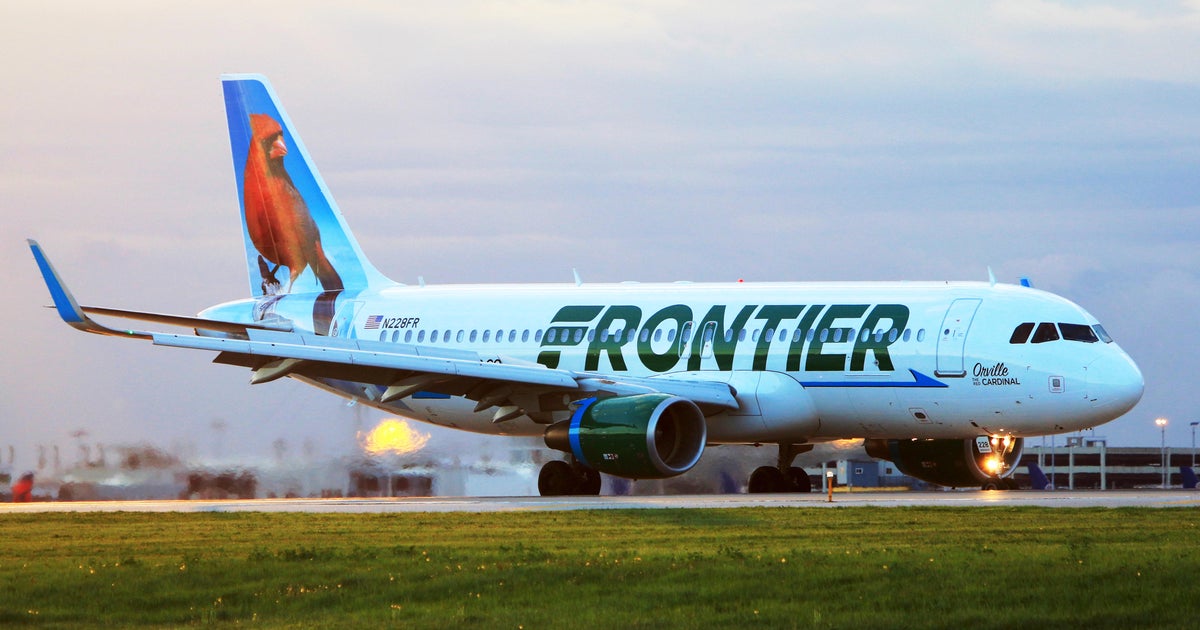What do Biden's new travel restrictions mean for you?
Your last day of vacation abroad could be a lot less relaxing under President Joe Biden's new COVID-19 safety protocols for travelers entering the U.S., which went into effect Monday.
The more restrictive measures were announced last week, as the Omicron variant of COVID-19, which was recently detected in the U.S., stirs up fears of another nasty wave of the virus.
Starting Monday, all travelers entering the U.S., regardless of their vaccination status or nationality, must provide proof of a negative COVID-19 test within one calendar day of their departing flight. Previously, a negative test administered up to three days before boarding a flight was considered valid. Biden has also extended the current rule mandating mask-wearing on airplanes, trains, buses and at airports — scheduled to expire in January — through mid-March.
Experts say that while the President opted not to implement more restrictive measures, like a required quarantine period for travelers returning to the U.S., the shortened testing window is cumbersome enough that it will deter some Americans from pursuing international travel for the time being.
Importantly, passengers may test at any time up to a day before they are scheduled to board a flight, even if that means testing more than 24 hours before departure. In other words, if a flight departs Saturday evening, a test that's taken Friday morning will allow you to board.
Still, the new rules have created some confusion among travelers who now have less time to figure out when and where to get a test before boarding their U.S.-bound flights. And while overseas clinics offer rapid tests that deliver same-day results, they can be costly. In the U.K., for example, a rapid test that delivers results within three hours will cost roughly $100, according to senior foreign CBS News correspondent Charlie D'Agata.
"Reducing the pre-flight testing period to one day for all travelers will have a substantial dampening effect on international travel — both Americans traveling abroad and foreigners visiting here," said Scott Keyes, founder of Scott's cheap flights, a site that helps consumers find deals on airfares.
He added, "We've already seen international travel interest drop sharply after the Omicron variant was discovered, while domestic travel interest has held steady. Today's news will exacerbate that trend — a significant number of travelers will reconsider international travel plans in favor of domestic trips where no pre-flight testing is required."
"Puts the onus on travelers"
The tightened testing period isn't expected to faze or deter more seasoned travelers, though, who've become accustomed to an ever-changing set of rules and regulations around air travel post March 2020.
"The new regulations are just continuations of what people who have been traveling internationally have already had to face," said Melissa Biggs Bradley, founder and CEO of Indagare Travel, a membership-based travel company.
She noted, "All of this puts the onus on travelers being much more informed, educated and prepared than they were pre-March 2020 — because we know things can happen and you need to have a plan b and a plan c. That's just the reality of the world we live in now."
So, what kind of test is acceptable?
Tests must meet criteria set by the Centers for Disease Control and Prevention, and may be either a PCR or an antigen test, better known as a rapid test. But not all rapid tests pass muster. For example, at-home testing kits that can be administered without the supervision of a proctor won't fly.
An at-home test must be affiliated with a telehealth provider so that it can be observed by a professional who can confirm the result. A test result must include the type of test, issuer — such as a laboratory or virtual health care service — sample collection date, personal identifier like a passport number and a test result.
Travelers may also visit local clinics that administer rapid tests and can turn results around quickly. Airline personnel will be tasked with verifying passengers' test results and denying those who are noncompliant from boarding the plane.
"The test is required to be checked by the airline when you show up to airport. They will look at test — rather than the border official. In the U.S., airlines are the front line of defense here," Keyes said.
Who pays for the test?
While travelers must be up on the latest regulations and arrange their own testing appointments, they are not responsible for the cost of the test.
Privately insured individuals who purchase over-the-counter COVID-19 tests may seek reimbursement from their health insurance provider, which is required to cover the cost of the test, President Biden said Thursday
Guidance from the Departments of Health and Human Services, Labor and the Treasury, due by January 15, will clarify that "individuals who purchase [over-the-counter] COVID-19 diagnostic tests will be able to seek reimbursement from their group health plan or health insurance issuer and have insurance cover the cost during the public health emergency," according to a White House fact sheet.
It's not yet clear if travelers will be reimbursed for tests administered by foreign clinics or health care providers.
What if I test positive?
Of course, there is a possibility that your test will deliver a positive result and you won't be able to return to the U.S. as scheduled.
Most airlines have waived change fees, allowing customers to rebook flights they can no longer take for a later travel date. Customers could be on the hook for paying a more expensive fare, though, if they are rebooking within a short time frame.
"It's very rare to find cheap flights a week or two out from travel. If a day or two before your flight you test positive and have to rebook for two weeks later, chances are — even if you don't pay a penalty — the new flight will be quite a bit more expensive than what you paid," Keyes said.
The costs of quarantining could be high, too, if you are in a foreign country and require accommodations for another two weeks.
"It could really significantly increase the cost of the trip, so this is why I think, at least for the time being, a lot of folks are being more cautious about international travel because they are worried not just about health risks but logistical and financial risks as well," Keyes said.
"Cancel for any reason" travel insurance
These days, what might have once seemed out of the realm of possibility — like a country closing its borders to travelers overnight, or a positive COVID-19 test forcing a trip extension — could happen. Bradley, of Indagare, urges consumers to purchase "cancel for any reason insurance" to protect themselves given the travel industry's current state of flux.
"We are recommending that people do buy 'cancel for any reason' travel insurance because all things happened in last week would be covered — the sudden closing of a border like Israel or the sudden ending of South African flights or (of) flights in and out of certain countries being able to come back to the U.S.," she said.
Some professionals in the travel industry — which has arguably struggled the most over the course of the pandemic — are dismayed by the ever-changing travel rules and restrictions, and are skeptical that they will effectively contain the spread of the Omicron variant.
"Traveling internationally is a real pain in the neck when you have to try and sequence the timing of your COVID test appropriately. Untangling requirements is not an easy thing to do, and people find themselves waiting for their test results. And if you don't make your flight then you may not be able to get out within the next 24 hours, which means you need to get tested again," said Dan Richards, CEO of Global Rescue, which provides travel and medical services to its members.
"If we are going to make changes they should be well-reasoned changes that achieve a desired outcome and we don't see that on this one unfortunately," Richards said.



